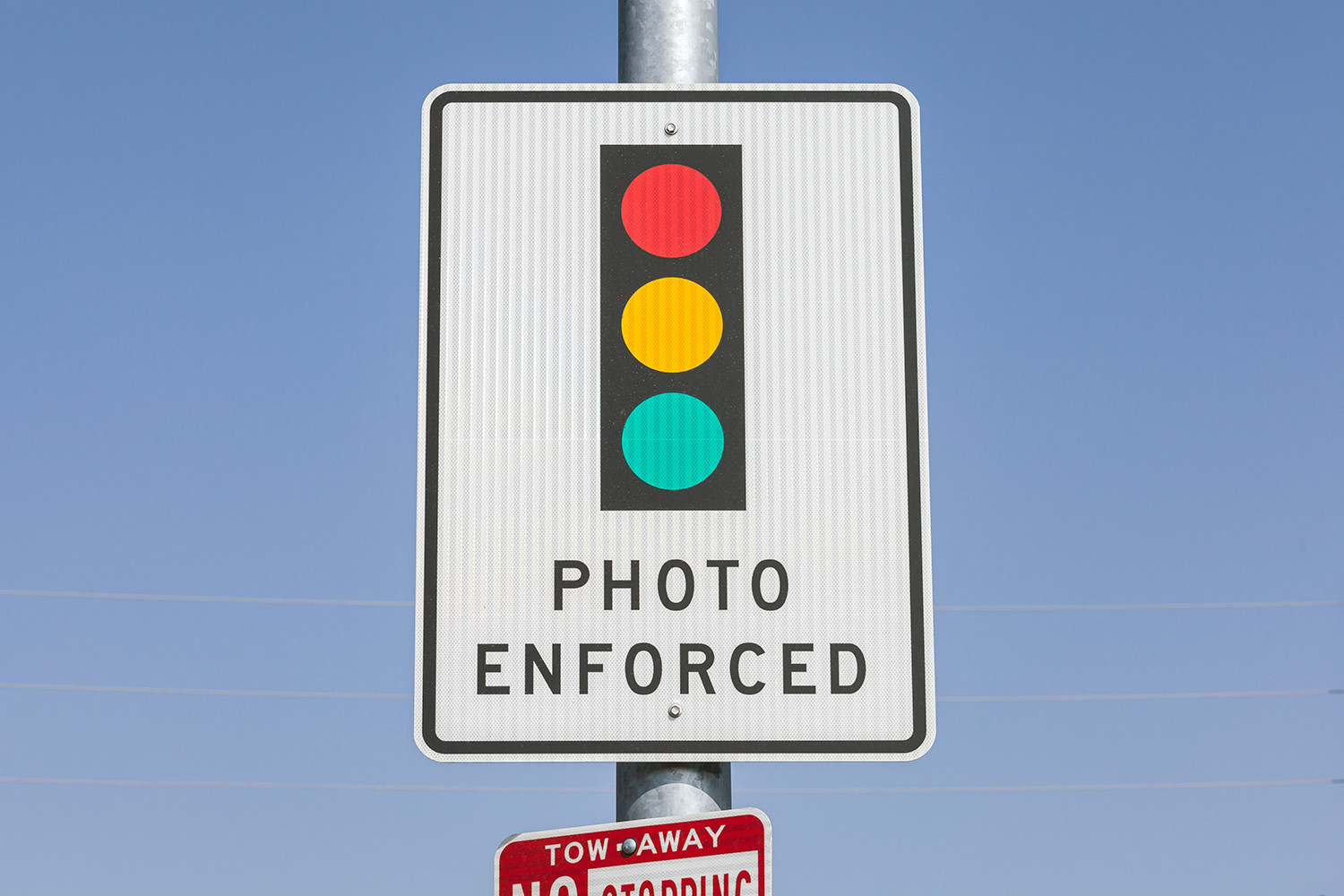
By Selene Raj
In 2012, American Traffic Solutions showed videos of deadly car crashes to members of the Tamarac city commission, promising them their red light cameras would save lives.
As if a camera could magically stop a car crash.
The presentation’s violent images made their decision easy, and the commission bought into the program.
The headache lasted for eight long years, creating animosity from the residents to their city — especially after the city targeted a hospital emergency room with a red light camera in front — waiting for someone who lacked the patience to sit at a long red light while their loved one needed help.
When a violator was captured on camera, a $158 ticket, payable to American Traffic Solutions, was issued. If tickets weren’t paid within 60 days, they could request a hearing in court. If the driver canceled their hearing, they still had to pay an extra $50. If they contested their violation and it was upheld, they had to pay an additional $125, on top of the $158 base ticket.
From 2014 to 2020, Tamarac’s red light camera program generated $7,076,004.26 in revenues and cost the city $5,975,453.20 to run. This generated $1,100,551.06 in six years, although it operated at a loss during certain years, including 2016. The surplus went into the city’s general fund, which is used to pay for various expenses.
The third-party contractor, ATS, now renamed Verra Mobility Corporation, was often at the center of controversy.
In 2018, they were met with a class-action lawsuit by Palm Beach residents, who claimed the company had stolen from consumers, millions upon millions of dollars, in unlawful commissions and surcharges that they categorized as convenience fees.
Since 2012, Tamarac Talk has covered the issues with the red light cameras in Tamarac, and for the past two years, Commissioner Mike Gelin has picked up the issue, asking for their removal, saying that studies have shown that red light cameras do not reduce speeding — contrary to their purpose.
“Other studies have shown that it causes more accidents in some cities as drivers react less on instinct and more on fear,” said Gelin.
He believes that the fees were too high, and he viewed it as a tax on residents—many ticketed drivers felt the same.
Not every red light camera ticket was warranted, despite being issued. A special magistrate was appointed to discern these instances, which might include extenuating circumstances where a driver’s view was obstructed or stopping would have been more dangerous and posed a greater risk of a car accident.
In one of many instances, when a woman first drove across the line, the light was not red. It remained yellow for the first 1.1 seconds of her crossing the street—in that instance, the woman did not pay her ticket and made it to the red light camera hearing to contest her ticket.
However, the red light camera hearings posed another monetary risk. They often happened in the middle of the day in the middle of the week, when working people typically could not attend.
In July of 2019, Tamarac Talk witnessed a woman who came to a hearing to contest her ticket during the slated 2:00 p.m. to 3:00 p.m. time. As 3 p.m. neared, she begged the magistrate to go out of alphabetical order to be heard before she had to leave to pick up her child.
At 3:37 p.m., she left, saying that she would have to forfeit her chance to be heard, and take on the extra debt, instead of leaving her child stranded at the side of the road.
One controversy involved the city placing a camera in front of University Hospital at the left turn lane to the emergency room. In 2014, a resident received a ticket after an emergency led him to turn into the hospital when there were no other cars at the intersection. His ticket wasn’t dismissed by the magistrate, even when he produced discharge papers.
WPLG-10 interviewed then-Mayor Harry Dressler.
“So if you’re headed to the emergency room here in Tamarac, and you’re having trouble breathing, wait for the light to turn green?” asked Reporter Roger Lohse.
“OK, it’s two minutes before my meeting. You’re going to have to excuse me. Please tell your viewers it’s illegal, and it’s dangerous,” said Dressler unsympathetically to the resident’s plight.
Tamarac suspended their program briefly in 2015. They had to throw out all tickets issued before May 1, 2018, due to the window for speedy trials expiring; however, they once again continued the program into 2020.
In 2015, Coral Springs ended their red light camera program. In 2013, Channel 7 News reported that the red light cameras positioned at Wiles Road and 441 in Coral Springs had been improperly calibrated with short yellow lights. This particular intersection raised eyebrows at one meeting when commissioners saw how many cars were being cited, believing the cameras effectively stopped the red-light runners.
Tamarac allowed their contract with ATS to expire on July 19 of this year—a decision approved as part of the consent agenda at the July 8 commission meeting.
However, part of the wind-down agreement, approved at the August 26 meeting, allowed the city to continue to access the ATS system to review violations—allowing ATS to continue billing and collecting fines for violations that occurred through July 19, 2020.
Though the city commission themselves are only meeting virtually at this time due to the Covid-19 pandemic, residents and commuters who receive red light tickets and opt to partake in red light camera hearings must still come in person to do so.
The most recent hearing was on October 8.
“We are in the midst of winding it down, and there are no discussions by city staff about reinstituting it at this time,” said spokesperson Sue Zeiler.
Got News? Send it to Tamarac Talk.
Author Profile

Latest entries
 NewsFebruary 15, 2026Students Reflect on Shared Black and Jewish Civil Rights History After Documentary Screening
NewsFebruary 15, 2026Students Reflect on Shared Black and Jewish Civil Rights History After Documentary Screening NewsFebruary 1, 2026Sheriff Tony Says Office of Inspector General Strengthens Accountability, Transparency at Broward Sheriff’s Office
NewsFebruary 1, 2026Sheriff Tony Says Office of Inspector General Strengthens Accountability, Transparency at Broward Sheriff’s Office NewsFebruary 1, 2026Mayor Gomez: February Brings Culture, Community, Remembrance and Plenty to Celebrate in Tamarac
NewsFebruary 1, 2026Mayor Gomez: February Brings Culture, Community, Remembrance and Plenty to Celebrate in Tamarac NewsJanuary 1, 2026Sheriff Tony: Excellence in Critical Response
NewsJanuary 1, 2026Sheriff Tony: Excellence in Critical Response







